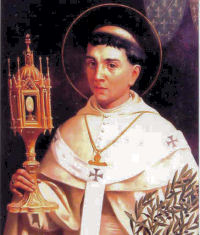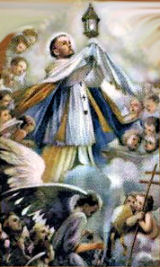Grace (Like in Sap)
June 6, 2015 by Joseph Hollcraft
I still remember the opening tune to the popular Saturday morning show Land of the Lost. My favorite subject matter in grade school was the dinosaur age. I would often pass the time as a kid playing with my
little dinosaur figurines. We had a pond in our backyard with tadpoles, and I used to have the inanimate dinosaurs battle the live tadpoles in a game of surrender (the dinosaurs usually won). Imagine my excitement when, as a junior in high school, I saw the trailer for a movie that would bring the extinct creatures that preoccupied my childhood back to life.
After my initial excitement of seeing dinosaurs on the big screen waned, I had a lingering question in my mind: how would they bring the dinosaurs to life? The movie wasted no time in answering that question. Mosquitoes bit
dinosaurs, then flew and landed on sap trees. The tree sap encased the mosquitoes and the dinosaur blood within them. Archaeologists found the fossilized mosquitoes, extracted the dinosaur DNA, mixed it with frog DNA to fill in the genetic gaps, and bingo–“Dino DNA” (Jurassic Park).
After watching the movie a handful of times, I found myself almost as fascinated with sap as I was with dinosaurs. I even recall going to a library and reading up on sap before research was so immediate on the Internet.
Later in college, the image of sap again grabbed my attention. One of my Dominican professors correlated sap with grace. He said, “The gifts we receive at baptism are like sap.” He continued, “Grace itself contains within it this idea of a sticky like substance.” In other words, grace, unmerited, sticks to our soul. This Dominican professor offered up for me a palpable image to better understand grace.
I left the classroom that day mindful of another truth as it relates to sap and grace.
Sap contains within it, nutrients, water, and even hormones. Sap, then, carries within it, life-giving properties and the identity of its source–the tree. Even more so, grace carries within its substance life-giving properties and the identity of its source–God’s love. It is to say, the grace that envelops us in the life of the Church is the very life-giving substance that is the love of God. In grace, we receive God’s spiritual DNA.
This life-giving substance protrudes from God and the life of the Church in two forms:
* Sanctifying Grace: This grace, which is a gift from God, truly makes us holy—like God—we truly share in His very life.
* Actual Grace: This grace helps us to become like God in specific circumstances in our life. As all grace, it is the free and undeserved help that God gives us to respond fully to His call (For a further distinction between these wonderful gifts of God to us, see the Catechism of the Catholic Church [CCC], paragraphs 1996-2001).
We are to draw from the nutrients of grace in a life of constant prayer that we might bear its fruit—joy! The word for joy, chara, is derived from the same Greek root that belongs to grace, charis. Joy is the fragrance of God’s very substance of grace. To tease out further, the word enthusiasm comes from the Greek en-theos, “that bears a god within”. Enthusiastic joy is not some self-created happiness, but the sweet fragrance of God bursting forth.
We are to submerge ourselves in God’s grace (like in sap), allowing it to nourish us and give us life, bring us joy, and effect all that we touch in our journey of faith.




 Although a cleric, Norbert led a very worldly life for a number of years. The decisive change took place suddenly in 1115. While riding one day, he was overtaken by a thunderstorm. A flash of lightning struck the ground before him, the horse threw him, and he seemed to hear a voice upbraiding him for his conduct.
Although a cleric, Norbert led a very worldly life for a number of years. The decisive change took place suddenly in 1115. While riding one day, he was overtaken by a thunderstorm. A flash of lightning struck the ground before him, the horse threw him, and he seemed to hear a voice upbraiding him for his conduct.